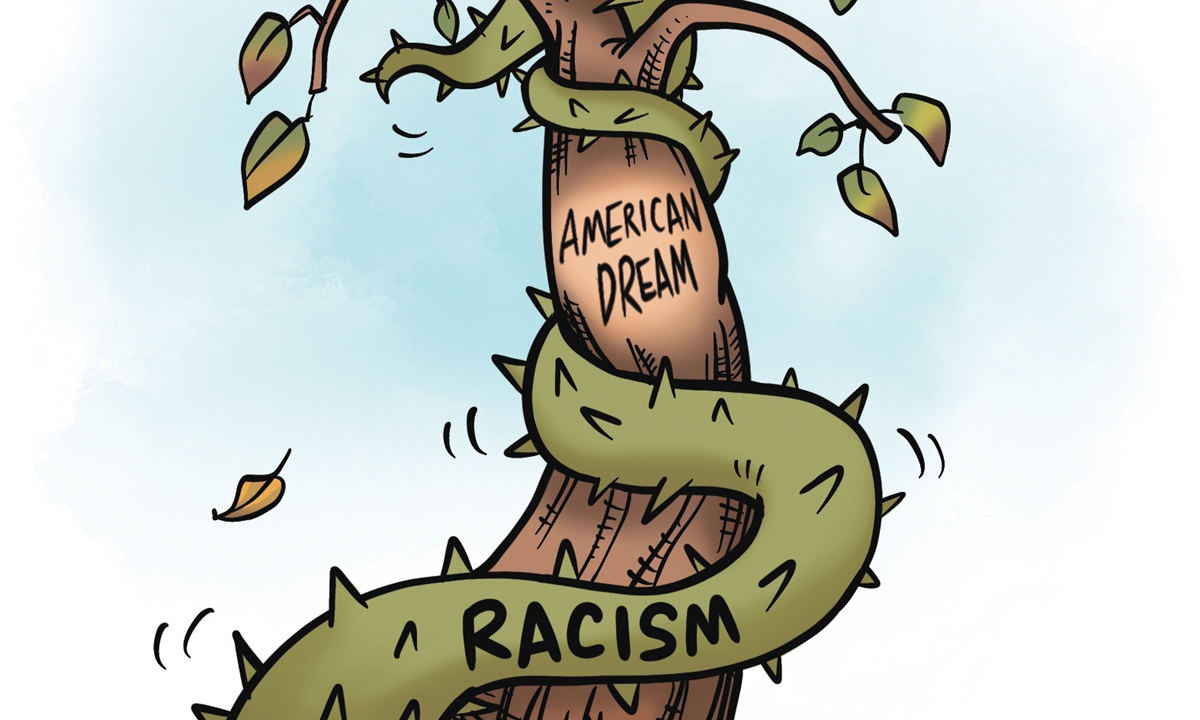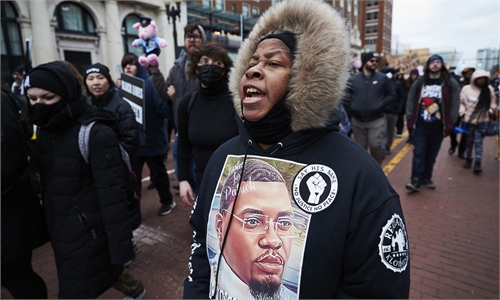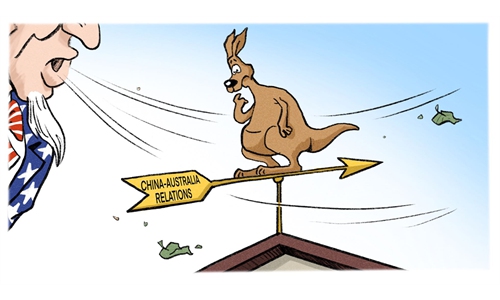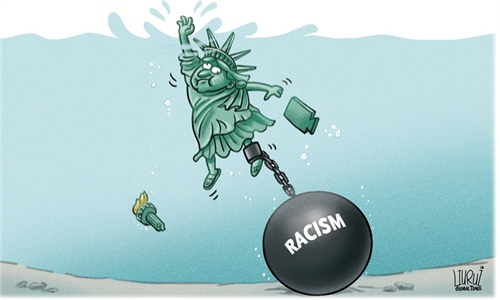
Illustration: Liu Rui/GT
On August 28, 1963, African American civil rights movement leader Martin Luther King, Jr gave his famous "I Have a Dream" speech in Washington, DC, to the crowd participating in the March on Washington protest. In his remarks, King envisioned a US society where black and white people could live peacefully and equally. Yet, 59 years later, it seems the US is now moving further away from King's dreams.King's speech is considered a highlight of the civil rights movement prevailing in the US in the 1950-60s. In the last almost six decades, after the relentless struggles of the black community, on the surface, progress in civil rights in political, social and economic aspects have been made in the country.
The law in the US has given African Americans equal civil rights with white people, while non-discrimination against the black community has long become political correctness. The open discrimination of the past has since evolved into a more subtle one. And what seems to be equality on the surface can only remind African Americans how unequal they are compared to white Americans.
What's worse, issues that emerged in the US in recent years suggest that the human rights situation of African Americans has even become worse in many ways. The US has become "most-racial" rather than "post-racial."
For instance, the problem of police brutality against African Americans has triggered protests from the black community in recent years. Economically, black Americans had, on average, one-sixth the wealth of white Americans in 2019 on a per capita basis, and that gap is still widening. Moreover, the COVID-19 epidemic has highlighted the massive inequality in the distribution of medical resources and social welfare between different ethnic groups, reigniting conflicts and the sense of separation and distrust between ethnic groups and races in US society.
Experts told the Global Times that conditions for addressing racial issues in today's US are worse than they were at the height of the civil rights movement. Back then, the US economy was still enjoying rapid postwar growth and gaining the upper hand in the Cold War with the Soviet Union. At the same time, the country's democracy entered a period of flourishing. In short, an optimistic sentiment dominated the whole society, with more people being idealistic.
Today, on the contrary, such idealism has long been tormented to death by the ailing of Washington's declining democracy. Many ethnic minorities in the US seem to live in a free and equal country, but they can never feel true freedom and equality. This is an outcome of the growing alienation of US democracy.
According to Ji Hong, a research fellow of the Institute of American Studies of the Chinese Academy of Social Sciences, US society is witnessing a tendency to turn increasingly "right" - especially with the rise of conservatism and white supremacy under the presidency of former president Donald Trump. As a result, many of today's US politicians are less willing to engage in reform regarding racial problems, let alone take action, said Ji. These people claim they support equality, but have already laid flat in action.
King's dreams are idealistic and simple, but also pragmatic and hard to achieve. They are deeply rooted in the American dream. But as long as white supremacy exists, affirmative action, the expression of political correctness, or the fairer distribution of social resources - none of these can remove the tumor of racism from Uncle Sam. For the US, racism will remain a time bomb that could shatter King's dreams and the American dream at any time.
The US is trying every possible means to whitewash its dirty history. Now it turns itself into a defender of "human rights," despite that it has been less than 60 years since the US ended segregation in public places. The West, which owes people of color heavy blood debts, is more than willing to whitewash its own history and that of the US so as to become a "just human rights fighter."
Racism in the US never ends. The shockwaves sent by the death of George Floyd can still be felt. Just in June, eight Akron police officers shot dead a young black delivery driver, firing over 90 shots at him.
The author is a reporter with the Global Times. opinion@globaltimes.com.cn



